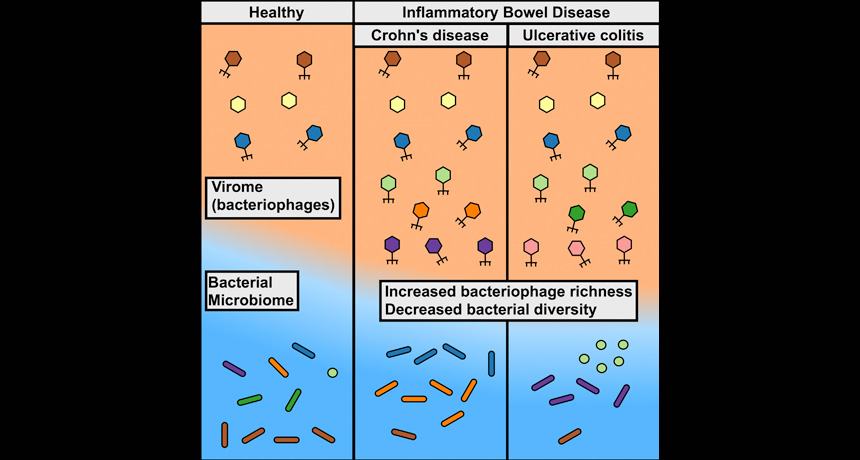When bacteria-killing viruses take over, it’s bad news for the gut
People with inflammatory bowel diseases carry more of some of these viruses, less good bacteria

VIRUS GUT-PUNCH Bacteria-infecting viruses called bacteriophages may kill friendly bacteria in the gut, causing inflammation and disease, a new study shows.
J.M. Norman et al./Cell 2015 (graphical abstract)